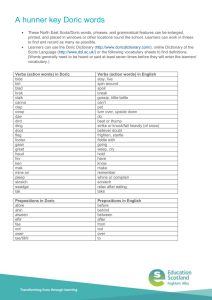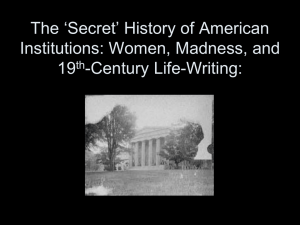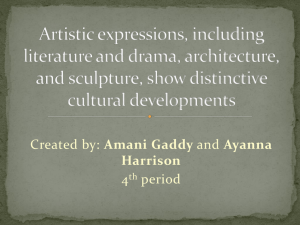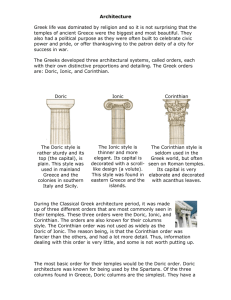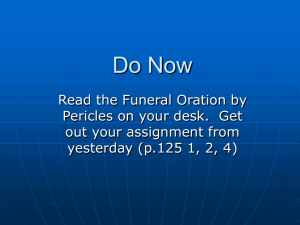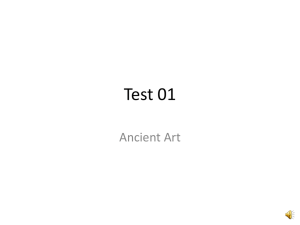A hunner key Doric words
advertisement
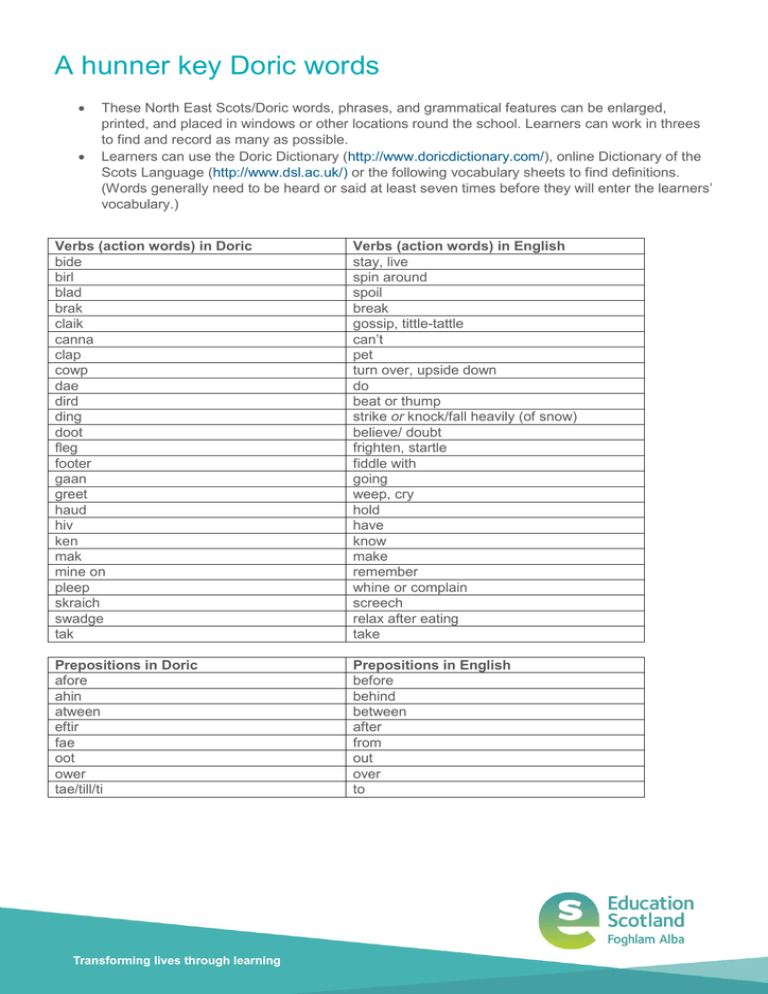
A hunner key Doric words These North East Scots/Doric words, phrases, and grammatical features can be enlarged, printed, and placed in windows or other locations round the school. Learners can work in threes to find and record as many as possible. Learners can use the Doric Dictionary (http://www.doricdictionary.com/), online Dictionary of the Scots Language (http://www.dsl.ac.uk/) or the following vocabulary sheets to find definitions. (Words generally need to be heard or said at least seven times before they will enter the learners’ vocabulary.) Verbs (action words) in Doric bide birl blad brak claik canna clap cowp dae dird ding doot fleg footer gaan greet haud hiv ken mak mine on pleep skraich swadge tak Verbs (action words) in English stay, live spin around spoil break gossip, tittle-tattle can’t pet turn over, upside down do beat or thump strike or knock/fall heavily (of snow) believe/ doubt frighten, startle fiddle with going weep, cry hold have know make remember whine or complain screech relax after eating take Prepositions in Doric afore ahin atween eftir fae oot ower tae/till/ti Prepositions in English before behind between after from out over to Transforming lives through learning Adjectives (describing words) in Doric auld daft fantoosh feart gyte ill-trickit mad muckle peelie-wally reid shilpit stoorie thrawn unca/unco wee Adjectives (describing words) in English old foolish, stupid fancy, elaborate afraid crazy mischievous angry big sickly, not well red feeble dusty stubborn, determined, headstrong strange, unfamiliar small Nouns (naming words) in Doric ba bairn trock bosie byre clapshot cloot clyse cog craitur the day freen gapus gloamin gluff guff gushel gutter hoose heid lass(ie),lassock loon Merry Dancers the morn tatties kye neeps quine sharn sooth, Doon Sooth Nouns (naming words) in English ball child goods of no value, trash, rubbish bosom, hug cowshed potatoes and turnips mashed together cloth clothes wooden tub creature/person today friend idiot dusk fright; inhalation of air smell clumsy person mud house head girl lad, boy the Northern Lights tomorrow potatoes cattle turnips girl cow dung (sticking to something) southern Scotland or England and Wales Transforming lives through learning strae toon watter wife, wifie yowe straw town; farmstead; the Toon – Aberdeen water woman, married or not ewe Pronouns (short words that replace nouns) in Doric hit ma thon faa fit wir ye Pronouns (short words that replace nouns) in English it my that who what, which our you Numbers in Doric ae or een twa siven hunner Numbers in English one two seven hundred Adverbs in Doric doon gey Adverbs in English down very, somewhat, rather now carefully, cautiously noo canny-like Exclamations/ Greetings Michty! Michty me! Fit like? Nae bad ava! exclamation of surprise How are you? Not bad at all! Some features of Doric grammar and speech Negative forms of verbs are created by adding ‘na’ at end – ‘canna’, ‘mustna’ etc. Present participles end in ‘in’ – never ‘ing’ : ‘scramblin’, ‘pretendin’, ‘surfin the internet’. Doric/Scots uses older, short vowel sounds in words like ‘hoose’, ‘moose’ and ‘coo’ (like Norwegian) instead of ‘house’, ‘mouse’ and ‘cow’ (like English). In Doric, the plural of ‘year’ is ‘year’, not ‘years’. E.g. ‘siven year ago’. In Doric, many questions words which begin with “w” in English begin with “f” – ‘fit?’. ‘fan?’, ‘fa?’. Transforming lives through learning
